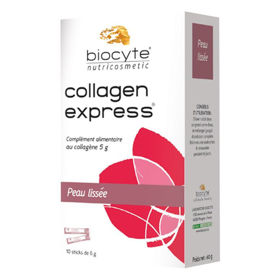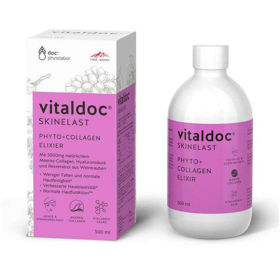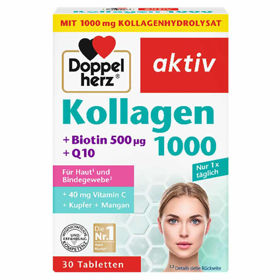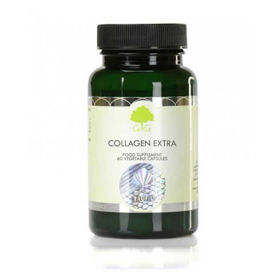Customer question:
What is collagen? How does it affect our bodies? Question from an anonymous forum customer
Pharmacist's answer:
Collagen is the most abundant protein in the body. Its fibrous structure is used to produce connective tissue. This type of tissue connects other tissues and systems and is the main component of bones, skin, muscles, tendons, and cartilage. In addition, collagen helps make tissues strong and flexible so they can withstand stretching.
Collagen is produced naturally in the body by combining amino acids, the building blocks of proteins found in food. With aging, the existing collagen breaks down, and the body produces it more and more slowly. Collagen production decreases the fastest due to excessive exposure to the sun, smoking, excessive alcohol consumption, and lack of sleep and exercise.
There are 28 types of collagen, but here are the four most common:
- Type I: the most common type found in all connective tissue.
- Type ll: found in joints and intervertebral discs.
- Type all is the main component of reticular fibers in your skin and blood vessels.
- Type IV: A component of your kidneys, inner ear, and eye lens.
Question from a customer forum: "Do collagen nutritional supplements help for beautiful skin and hair?"
Pharmacist's response:
Collagen is a protein considered one of the main building blocks of your bones, skin, hair, muscles, tendons, and ligaments. Collagen is the molecule in our skin that prevents the skin from sagging, which in turn gives it a youthful appearance. Your body naturally produces collagen, but this production decreases with age.
From the mid-twenties of human life onwards, we slowly lose collagen. For example, in women, up to 30% of collagen can be lost in the first five years of menopause. As we lose collagen as we age, many use collagen supplements as part of an anti-aging beauty regime.
Customer Question: "Which collagen type is best for the skin?"
Pharmacist's response:
Type I collagen is generally considered the best for the skin. It is the most abundant type of collagen in the body. Type I collagen levels begin to decline around the age of 25.
If you want to take a collagen supplement, it is recommended to take hydrolyzed collagen. Hydrolyzed collagen means the collagen has been broken down into small peptides easily digested by the body. Consuming collagen with vitamin C gives the body the best chance to utilize the collagen delivered fully.
Question from a customer: "Which form of collagen is best as a dietary supplement? Do I prefer liquid collagen or powder?"
Pharmacist's response:
Collagen powder is usually a better choice because it generally contains fewer residual additives and more collagen than liquid collagen. But, of course, this does not mean that products with liquid collagen are harmful.
However, we recommend a selection of liquid forms with high-quality collagen peptides and a clean profile of excipients.
Interesting reading: Best collagen for joints












 Facebook
Facebook
 Instagram
Instagram
 info@moja-lekarna.com
info@moja-lekarna.com

